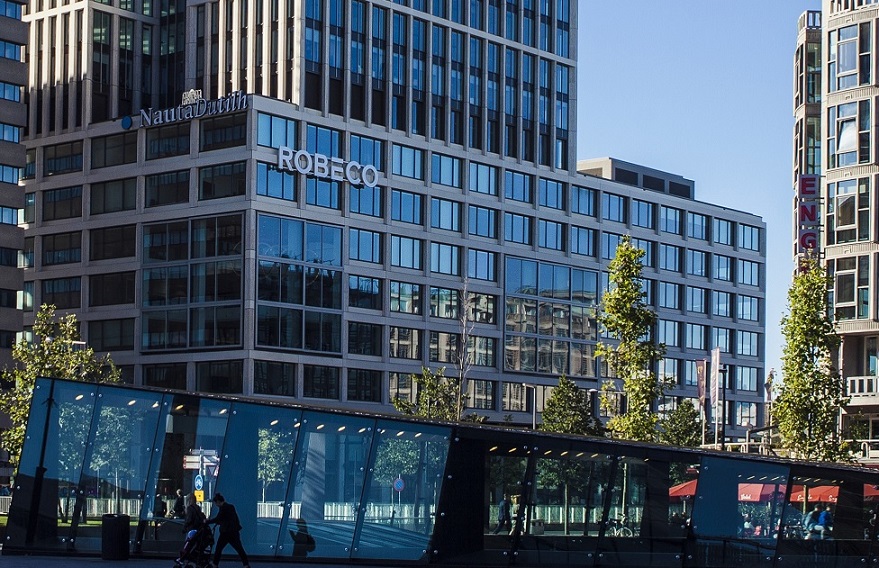
Robeco to Target Sustainable Fashion, Ocean & Climate Sustainability, ‘Forever Chemicals’ in Corporate Engagements
International asset manager Robeco announced the introduction of ocean sustainability and phasing out hazardous chemicals as two new focus themes that it will be discussing with companies in its 2024 engagements, in addition to stepping up pressure on high carbon companies to align with climate goals, and engaging with fashion companies to address key sustainability issues in the sector.
According to Robeco, each of its engagement topics were selected following consultation with clients. The asset manager’s sustainable investment engagements typically run for three-year periods, with engagement specialists in contact with selected investee companies to track progress against objectives.
Peter van der Werf, Head of Engagement at Robeco, said:
“We listened to our clients, and that’s why we’ve changed our approach.”
Robeco’s new ocean biodiversity theme will target approximately six companies assessed as having a significant impact on sea life, such as aquaculture and fisheries, focusing on issues including maritime pollution and overfishing. The company will also engage on the impact of deep sea mining, largely through its involvement in biodiversity-focused investor engagement group Nature Action 100.
The hazardous chemicals theme will also target around six companies, with a particular focus on phasing out PFAS. Widely known as “forever chemicals,” PFAS are a group of chemicals that have been in use in a wide range of consumer and industrial products since the 1940s, and are commonly found in food packaging, fabrics, kitchenware products, fire-fighting foam, and electronics, among other products. The chemicals tend to be very persistent, and don’t break down over time, and have been found to accumulate in the human body and in the environment.
Sylvia van Waveren, Robeco’s Senior Engagement Specialist responsible for dialogue with the chemicals industry, said:
“Both ocean biodiversity and hazardous chemicals have a focus on the planetary boundaries, which are way out of the safe zone.”
Under its ongoing “acceleration to Paris” theme, initially launched in late 2021, Robeco said that it will place a greater emphasis on speeding up the transition of business models to meet the Paris Agreement temperature goals, targeting high-carbon companies lagging behind in the net-zero transition. Robeco said that it will set minimum standards for 42 companies, with 2026 and 2028 deadlines for developed world and emerging markets companies, respectively, with potential exclusions to be put in place if the standards are not met.
Cristina Cedillo, Senior Engagement Specialist responsible for coordinating climate engagement at Robeco said that the minimum standards for the climate theme include “reporting emissions data for Scope 1 and Scope 2 and subsequently setting targets for emissions reductions.”
Cedillo added:
“In addition, we expect oil and gas companies to set methane targets, which is something that we don’t have yet. Finally, we also need companies to commit to no new coal expansion. All these criteria are part of our enhanced engagement program, which means that a company could be excluded if we were to conclude our engagement as non-effective.”
The sustainable fashion theme follows the recent launch by Robeco of the Fashion Engagement Equities Strategy, aimed at enabling investors to meet the dual objectives of earning attractive investment returns while promoting sustainability-focused change in the fashion industry. The fund aims to invest in 30 to 40 publicly listed companies across the entire fashion value chain, with a view to engaging with each portfolio company on improving sustainability, across key areas including decent work, natural resource stewardship, circular models, stakeholder management, and governance & policies.
van der Werf added:
“We used to do a deep dive on a peer group of companies, put them into an engagement theme, and then end the themes at the same time. Now we’re really planning to add companies on a rolling basis when our investment and sustainability research indicates the need for engagement.
“So, we’ll continue with what we call our ‘evergreen’ engagement themes of climate, biodiversity, human rights and governances. “It’s all an ongoing process, but with a focus on engaging where the most urgent issues will arise for companies in our strategies next year.”